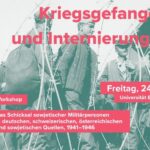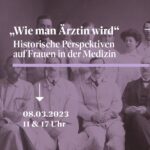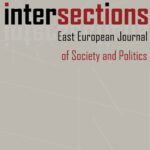 Forschungsstelle Diplom. Dokumente der Schweiz; Univ. Bern und Deutsches Historisches Institut Moskau (Web)
Forschungsstelle Diplom. Dokumente der Schweiz; Univ. Bern und Deutsches Historisches Institut Moskau (Web)
Zeit: 24.03.2023, 9.00-18.00 Uhr
Ort: Bern
Millionen von Angehörigen der Roten Armee kamen während des Zweiten Weltkriegs in deutsche Kriegsgefangenschaft. Mehreren Tausend gelang die Flucht in die Schweiz. Sie spielten bei der Wiederaufnahme der diplomatischen Beziehungen zwischen der Schweiz und der Sowjetunion eine zentrale Rolle. In der Sowjetunion wiederum waren die (ehemaligen) Kriegsgefangenen mit dem kollektiven Vorwurf des Verrats konfrontiert. Der Workshop diskutiert Kriegsgefangenschaft, schweizerische Internierungspraxis und Fragen der Repatriierung in ihrer Verflechtung. Dabei finden auch Perspektiven der Kriegsgefangenen bzw. Internierten selbst sowie unterschiedliche Erfahrungen dieser heterogenen Gruppe Berücksichtigung.
Programm
- Julia Richers (Univ. Bern) und Sacha Zala (Dodis/Univ. Bern): Sowjetische Kriegsgefangene und schweizerische Internierungspraktiken im Zweiten Weltkrieg
Panel: Hintergründe und Einordnung
- Carmen Scheide (Univ. Bern): Deutsche Besatzung der Ukraine. Mobilitätserfahrung und Kulturkontakte Continue reading

 Josephinum – Medizinhistorisches Museum Wien
Josephinum – Medizinhistorisches Museum Wien  Univ. of California – Berkeley; Ty Blakeney, William M. Burton, Ilana Eloit, Carolina Topini, and Agnès Vannouvong
Univ. of California – Berkeley; Ty Blakeney, William M. Burton, Ilana Eloit, Carolina Topini, and Agnès Vannouvong  Intersections. East European Journal of Society and Politics (IEEJSP); Maria Mayerchyk, Greifswald Univ. and Jennifer Ramme, European Univ. Viadrina
Intersections. East European Journal of Society and Politics (IEEJSP); Maria Mayerchyk, Greifswald Univ. and Jennifer Ramme, European Univ. Viadrina